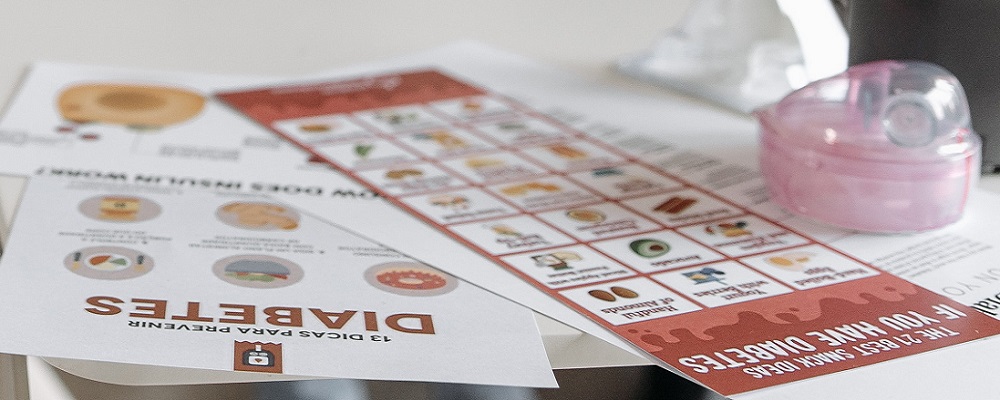Receiving a diagnosis of diabetes can trigger a torrent of emotions – from nearly-numb denial to frustration, anger, and resentment, from fear and confusion to depression and feelings akin to grief. As with any medical diagnosis, it’s totally natural to experience a range of feelings.
Diabetes requires a great deal of day-to-day commitment. Diabetes demands lifestyle modifications and steady, consistent discipline. And for people with the condition, so much of the required care and treatment falls into their own hands. Honestly, diabetes can be hard work. Stress, depression, and anxiety are common emotions, which can in turn make diabetes even more difficult to manage.
Managing diabetes takes up time in your day, but it shouldn’t take up that much space in your mind. So, how does one stay positive in the face of such an ongoing challenge to one’s physical and mental well-being?
Accept diabetes as a part of your life. Denial is common. It’s normal – at first. But ignoring diabetes will only make it worse. While it may sound impossible, welcome diabetes into your life, make it a member of your family, a part of your life that you have to accept unconditionally – no matter how much you dislike it or resent it! Give your diabetes a name and get to know it and its needs and unique qualities. When you accept that you have to live with diabetes, you can get on with the business of living well with it.
Know diabetes well. Part of learning to accept your diagnosis is learning about the disease itself. Ask your physician or primary health care provider why you developed diabetes so you can understand the factors that brought it on. Get to know the potential complications and the actual risks of developing them. Sign yourself up for a diabetes education class or join a support group. Stay up-to-date on the latest research and innovations into the condition. By arming yourself with knowledge, you can disarm the feelings of panic and confusion you might feel.
Make a realistic plan. You set yourself up for disappointment if you strive for perfection. This is true in anything, but it’s especially true in diabetes. You will need to have a solid plan for managing your condition – but you will also have to be flexible enough to know when some part of the plan is not working well. Work with a diabetes educator to create a realistic plan that matches your lifestyle, your personality, and your body’s specific needs.
Create a contingency plan. Just like you need an everyday plan for managing diabetes, you need a plan in place in case something goes awry. Do you know what to do if your blood sugar dips too low or soars too high? What will you do if a medication causes unpleasant side effects? Where will you turn if you feel overwhelmed by the responsibility of it all? What are your options if you lose your job or need to relocate? How do you prepare for a vacation? Think ahead to anticipate potential situations that might compromise your ability to manage your diabetes, and set up a backup plan.
Have a support network in place. Even with great organization and the best backup plan, everyone needs someone to talk to now and then. Remember that you are not alone. Reach out to friends and family when you need support. Forge friendships with other people living with diabetes. Clue in your boss and co-workers on your condition so they can lend a hand or simply understand when you need a moment or a day off.
Master the numbers game. The lives of some people with diabetes can become a numbers game: blood glucose readings, A1C, carb counting, weigh-ins, blood pressure and cholesterol checks. Keep in mind that the numbers will shift and change over time, and you will have good and bad days (or weeks, or months!). Look at the numbers as measures of health factors – not as measures of your self-esteem.
Know the signs of depression. About 10% of people with diabetes experience major depression. Anxiety disorders are also more common in people with diabetes compared to people without diabetes. Teenaged and young women with type 1 diabetes are at higher risk of developing eating disorders than their peers without diabetes. Studies show that depression can lead to poor self-management habits and ultimately a higher risk of complications. Treatment of depression with psychotherapy or medications (or both) can work for people with diabetes. You may even be able to find a mental health professional who specializes in helping people living with both depression and a chronic disease. Watch for signs, including sadness, changes in appetite and sleep patterns, nervousness, and loss of energy and concentration.
Catch yourself being good. With a disease as day-to-day daunting as diabetes, it’s easy to get into a negative spiral and to only notice the mistakes you make. Guilt over a skipped workout, remorse for an overindulgence, letting your numbers slip into the danger zone – seeing only the negatives can sabotage your better efforts. Turn guilt on its head and catch yourself being good! Reward yourself for small victories.
Original source: Diabetes: staying positive – Diabetes – MedBroadcast.com, 1996-2022.







